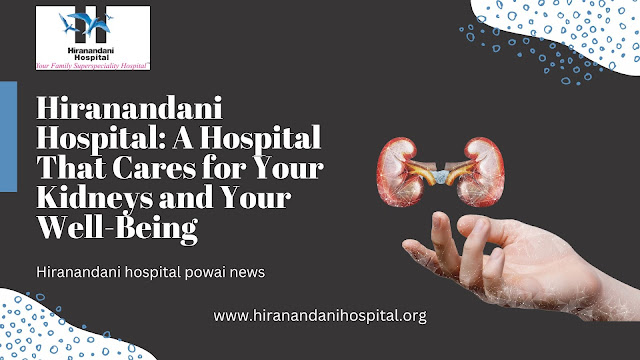Get Rid of Kidney Stones with Effective Treatments
Introduction
Kidney stones, those tiny, hard mineral deposits
that form in the kidneys, can be excruciatingly painful. The good news is that
you don't have to endure this discomfort indefinitely. There are various
treatments available to help you get rid of kidney stones and regain your
quality of life. In this article, we'll explore these treatments and how they
can alleviate your suffering.
Understanding Kidney Stones
Kidney stones come in various forms, with the
most common types being calcium stones, struvite stones, uric acid stones, and
cystine stones. The type of stone you have can significantly influence the
choice of treatment and preventive measures.
Types of Kidney Stones
The most common types include calcium, struvite,
uric acid, and cystine stones. The stone type influences treatment and
prevention strategies.
- Calcium Stones: Mostly composed of calcium
oxalate, dietary factors and medical conditions contribute to their formation.
- Struvite Stones: Associated with urinary tract
infections, they can grow rapidly and cause severe issues.
- Uric Acid Stones: Linked to gout and certain
diets, they form in acidic urine.
- Cystine Stones: Rare and hereditary, they
result from excess cystine excretion.
Causes and Risk Factors
Understanding the causes of kidney stones is
essential for treatment and prevention:
- Genetics: Family history increases the risk.
- Diet: High oxalate, salt, and purine diets,
along with dehydration, raise the risk.
- Medical Conditions: Conditions like UTIs and
inflammatory bowel disease can predispose individuals to kidney stones.
- Medications: Some medications can promote
stone formation.
Symptoms and Complications
Kidney stones manifest through various symptoms,
including:
- Severe Pain: Intense pain in the lower back,
side, and lower abdomen.
- Urinary Changes: Frequent urination, urgency,
painful urination, and blood in urine.
- Nausea and Vomiting: Severe pain can cause
nausea and vomiting.
Ignoring these symptoms can lead to
complications like urinary tract infections, kidney damage, or urinary tract
obstruction. Early recognition and understanding of kidney stone types and
causes are crucial for timely treatment and prevention.
Dietary Changes
Modifying your diet can be an effective way to
manage and prevent kidney stones. Adjustments may include reducing high-oxalate
foods, staying well-hydrated, and managing salt and protein consumption.
Medications
Certain medications can help manage kidney
stones, depending on their type and cause. These medications may help break
down the stones or prevent their formation. Consult a healthcare provider for
medication options.
Extracorporeal Shock Wave Lithotripsy (ESWL)
ESWL is a non-invasive procedure that uses shock
waves to break kidney stones into smaller, passable fragments. This outpatient
treatment is often suitable for smaller stones and requires little recovery
time.
Ureteroscopy
For stones located in the ureter, ureteroscopy
is a minimally invasive option. A thin, flexible tube with a camera is inserted
to locate and remove the stone.
Percutaneous Nephrolithotomy (PCNL)
PCNL is a surgical procedure used for larger
kidney stones. It involves making a small incision in the back and using a
nephroscope to remove or break down the stone.
Lifestyle Changes for Prevention
In addition to treating kidney stones, lifestyle
changes play a crucial role in preventing their recurrence. Healthcare
providers may recommend dietary modifications, increased fluid intake, and
regular exercise to lower the risk of future stone formation.
Home Remedies and Natural Treatments
Some individuals opt for natural remedies to
complement medical treatments or manage smaller stones at home. These remedies
may include lemon juice, apple cider vinegar, or herbal treatments. While they
may offer relief, it's essential to consult with a healthcare provider before
relying solely on home remedies for larger or symptomatic stones.
Conclusion
Dealing with kidney stones is an uncomfortable
experience, but with the right treatment, relief is within reach. Early
diagnosis and appropriate medical guidance are vital in managing kidney stones
effectively. If you suspect you have kidney stones or have a history of them,
consult a healthcare professional for an accurate diagnosis and personalized
treatment plan.
At Hiranandani
Hospital, led by Dr. Sujit Chatterjee, we are dedicated to providing
comprehensive kidney care. We understand the importance of timely and effective
treatment for kidney stones. Your health and well-being are our priorities, and
we're here to help you overcome kidney stone issues and enjoy a pain-free life.
By adhering to these keyword-rich treatments and
lifestyle changes, you can take a significant step towards eliminating kidney
stones and maintaining optimal kidney health.



Comments
Post a Comment